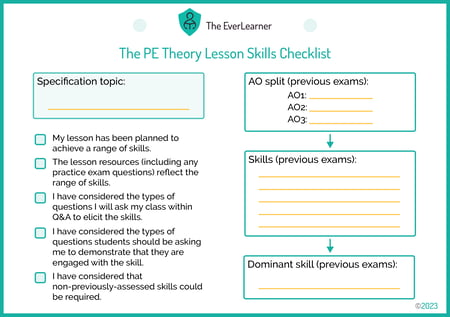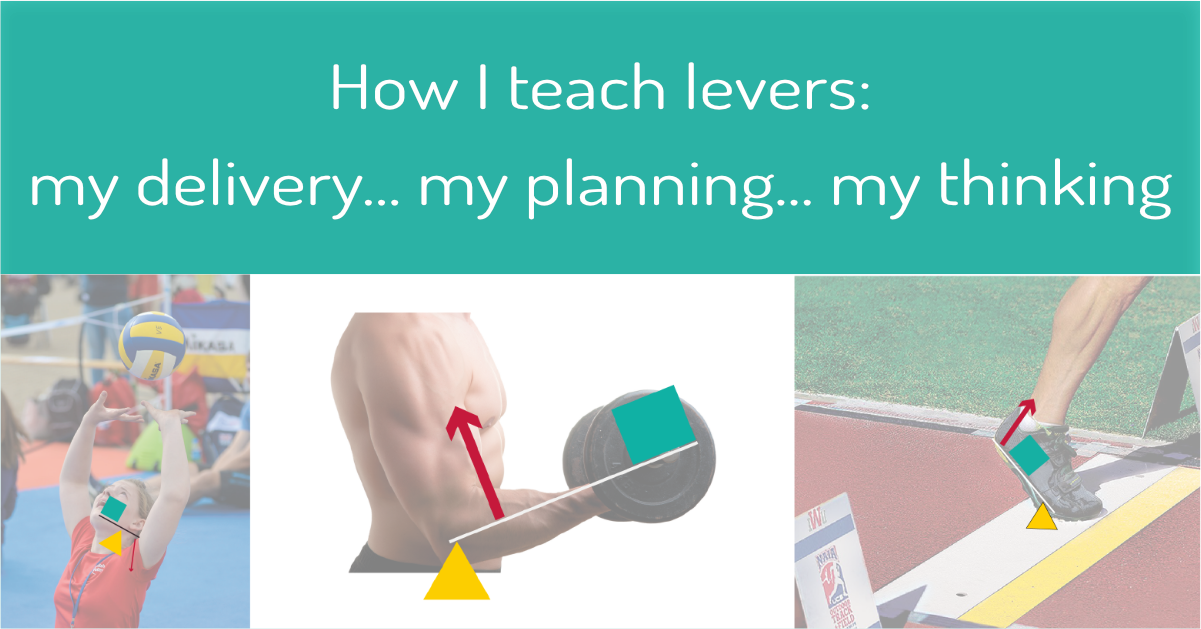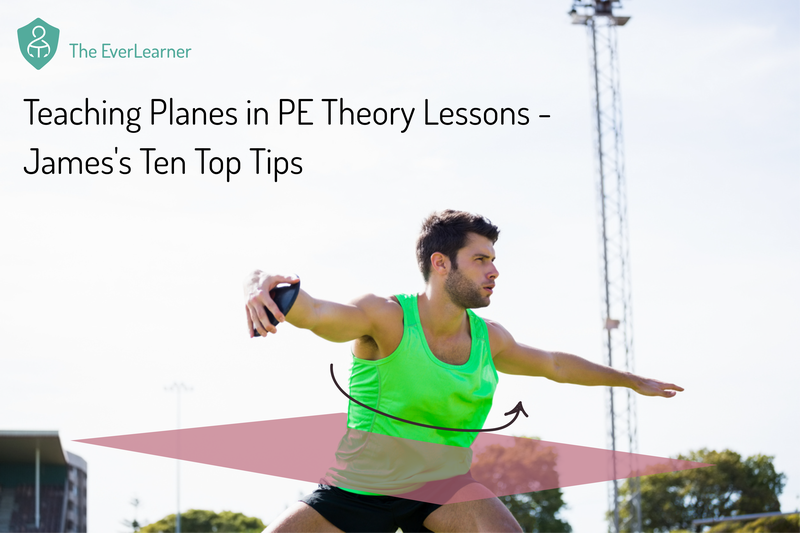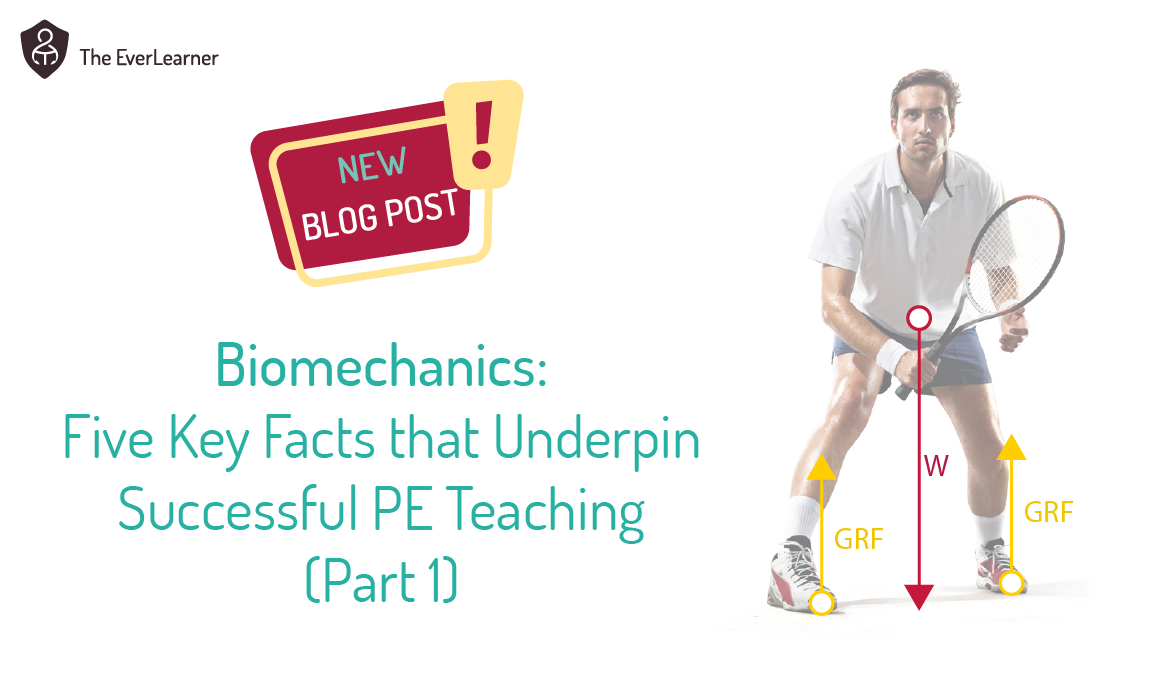The PE Theory Lesson Skills Checklist
Dear PE colleagues, this blog is for you. I want to try and provoke you into, potentially, thinking differently about PE theory lesson planning.
For some years now, I have been planning my theory lessons with a strong focus on skills as well as content. Unlike at the start of my career, when I taught lessons such as “The energy lesson” or the “The guidance lesson”, these days I teach lessons with the ambition of deriving a series of skills (both thinking and writing skills) via topic areas. For example, these days I teach a lesson that could be titled “How to justify and achieve AO2 and AO3 marks using the ‘Components of fitness’ topic” (this lesson title is a bit long and I never write this down in the real world) or “How to evaluate using the ‘Guidance’ topic”.
Many of you will be aware, for example, that my yearly plans are incredibly simple but feature the skills as the dominant lesson requirement even before the content. Take a look at this example:
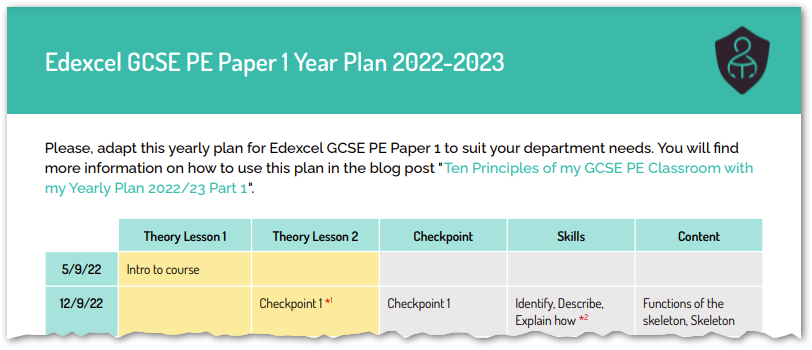 Click to download your free copy
Click to download your free copy
But how does one know what skills to elicit? How does one know that the skill is developing? The answer to the second question is super simple:
In exactly the same way that you would with content theory.
But what about knowing which skills to develop?
Well, there are two approaches to this:
- Generally, cover a range of skills across a range of lessons.
- Use the new PE Data Centre that I am publishing to elicit the exact skills.
Take a look at this image:

This data relates to AQA GCSE PE 9-1 and the topic of components of fitness. Can there be any doubt as to which skills are most important during the associated lesson?
With these thoughts in mind, I would like you to take a look at the document below. This is what I refer to as “my checklist” which I’m "zhushzing-up" here and re-branding to...
The PE Theory Lesson Skills Checklist
I know! Exciting right!? 🙌 Grab your own copy...
The idea is that you can use this checklist to self-monitor that you are planning to develop and, indeed, developing the relevant skills in your students during lessons and homework. Used correctly, this checklist will take less than 60 seconds to complete but, I would argue, could have a major impact on your lesson activities. In other words, it is highly time and cost efficient (it costs £0 - just download it!)
I will include a blank checklist to begin with:
Click to get your own blank copy
So, this checklist is for the teacher’s use prior to a lesson or even prior to the planning of the lesson.
Let’s take a look at a completed version:
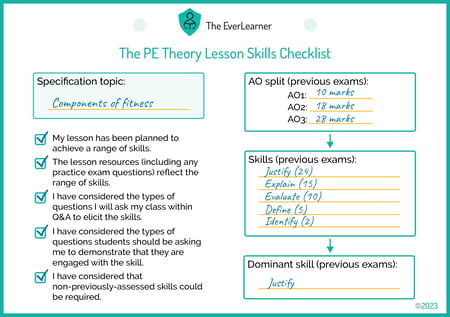
So, let’s take a step back. The teacher that has completed this is now not just teaching a Components of Fitness lesson. I would argue that the teacher is now more likely to:
Assuming this to be the case, how long is the teacher likely to spend on a slide show or on students immediately remembering the exact definitions? What is the best use of lesson and homework (including pre-learning) time to achieve the requirements in the checklist?
I also want to pose a rhetorical question to you directly:
What about Q&A?
Q&A, in my experience, is a feature of almost all classes. Therefore, it is entirely relevant to consider what Q&A might look like in the lesson referenced above.
Consider this conversation:

Now, the teacher should realise that this is not a robust justification, so needs to delve:



So, with some relevant Q&A, my student(s) has gone from:

To:
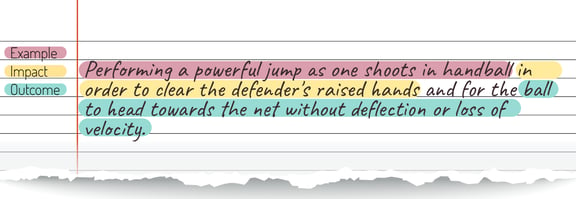
😀 This is linked to my work on the E - I - O model which I urge you to read about here.
Because the teacher is considering the skill requirement of the lesson, the Q&A session has clarity and intent. Consider the ongoing impact of this.
But Q&A shouldn’t always be from teacher to student(s). No! Questions that our students ask us clearly demonstrate the modality in which they are thinking (and potentially writing). For example, if a student were to ask me this question:
What modality is this? The student is giving me linguistic predicates to the way they are thinking and I can use this to our advantage. The student who I have quoted here is clearly thinking evaluatively. Therefore, I might give the following responses:

Or…

Exactly how this lesson progresses will be personal to us as teachers but the important thing is that we are fully aware of the skill requirement. It could even be that we detour away from evaluation if another skill is required.
So, I will leave you to ponder my suggestion and to consider the use of this new, beta resource.
Thank you for reading.
James
%20Text%20(Violet).png)
